‘War As We Saw It’ Authors Killed
Two of the seven co-authors of "The War As We Saw It," perhaps the most compelling analysis of the Iraq war, died on Monday in a vehicle accident. Sgt. Omar Mora and Staff Sgt. Yance T. Gray, along with five other active duty soldiers, wrote in The New York Times that "[Iraqis] will soon realize that the best way to regain dignity is to call us what we are -- an army of occupation -- and force our withdrawal."Two of the seven co-authors of “The War As We Saw It,” perhaps the most compelling analysis of the Iraq war, died on Monday in a vehicle accident. Sgt. Omar Mora and Staff Sgt. Yance T. Gray, along with five other active duty soldiers, wrote in The New York Times that “In the end, we need to recognize that our presence may have released Iraqis from the grip of a tyrant, but that it has also robbed them of their self-respect. They will soon realize that the best way to regain dignity is to call us what we are — an army of occupation — and force our withdrawal.”
Another one of the authors was shot in the head before the essay was published, though he survived. That nearly half of these soldiers who argued so convincingly against rosy assessments of the war have been either killed of seriously injured is a tragic footnote to their story, particularly as their commanding general parades his upbeat appraisal through the halls of Congress.
Read Truthdig editor Robert Scheer’s take on “The War As We Saw It.”
Your support is crucial...The War As We Saw It (from Salon.com):
Editor’s note: This Op-Ed piece by seven active-duty U.S. soldiers was published in The New York Times on Aug. 19. Two of its authors, Sgt. Omar Mora and Staff Sgt. Yance T. Gray, were killed Monday in a vehicle accident in Iraq. Staff Sgt. Jeremy Murphy, another of the seven authors, was shot in the head in Iraq on Aug. 12, before the article was even published. He is recovering at the National Naval Medical Center in Maryland and, through a woman who identified herself as his sister, declined a request from Salon for comment.
BAGHDAD — Viewed from Iraq at the tail end of a 15-month deployment, the political debate in Washington is indeed surreal. Counterinsurgency is, by definition, a competition between insurgents and counterinsurgents for the control and support of a population. To believe that Americans, with an occupying force that long ago outlived its reluctant welcome, can win over a recalcitrant local population and win this counterinsurgency is far-fetched. As responsible infantrymen and noncommissioned officers with the 82nd Airborne Division soon heading back home, we are skeptical of recent press coverage portraying the conflict as increasingly manageable and feel it has neglected the mounting civil, political and social unrest we see every day. (Obviously, these are our personal views and should not be seen as official within our chain of command.)
The claim that we are increasingly in control of the battlefields in Iraq is an assessment arrived at through a flawed, American-centered framework. Yes, we are militarily superior, but our successes are offset by failures elsewhere. What soldiers call the “battle space” remains the same, with changes only at the margins. It is crowded with actors who do not fit neatly into boxes: Sunni extremists, Al Qaeda terrorists, Shiite militiamen, criminals and armed tribes. This situation is made more complex by the questionable loyalties and Janus-faced role of the Iraqi police and Iraqi Army, which have been trained and armed at United States taxpayers’ expense.
A few nights ago, for example, we witnessed the death of one American soldier and the critical wounding of two others when a lethal armor-piercing explosive was detonated between an Iraqi Army checkpoint and a police one. Local Iraqis readily testified to American investigators that Iraqi police and Army officers escorted the triggermen and helped plant the bomb. These civilians highlighted their own predicament: had they informed the Americans of the bomb before the incident, the Iraqi Army, the police or the local Shiite militia would have killed their families.
As many grunts will tell you, this is a near-routine event. Reports that a majority of Iraqi Army commanders are now reliable partners can be considered only misleading rhetoric. The truth is that battalion commanders, even if well meaning, have little to no influence over the thousands of obstinate men under them, in an incoherent chain of command, who are really loyal only to their militias.
Similarly, Sunnis, who have been underrepresented in the new Iraqi armed forces, now find themselves forming militias, sometimes with our tacit support. Sunnis recognize that the best guarantee they may have against Shiite militias and the Shiite-dominated government is to form their own armed bands. We arm them to aid in our fight against Al Qaeda.
However, while creating proxies is essential in winning a counterinsurgency, it requires that the proxies are loyal to the center that we claim to support. Armed Sunni tribes have indeed become effective surrogates, but the enduring question is where their loyalties would lie in our absence. The Iraqi government finds itself working at cross purposes with us on this issue because it is justifiably fearful that Sunni militias will turn on it should the Americans leave.
As we navigate an uncertain 2025, with a new administration questioning press freedoms, the risks are clear: our ability to report freely is under threat.
Your tax-deductible donation enables us to dig deeper, delivering fearless investigative reporting and analysis that exposes the reality beneath the headlines — without compromise.
Now is the time to take action. Stand with our courageous journalists. Donate today to protect a free press, uphold democracy and uncover the stories that need to be told.

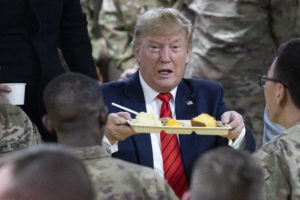

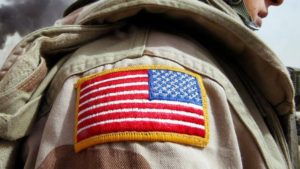
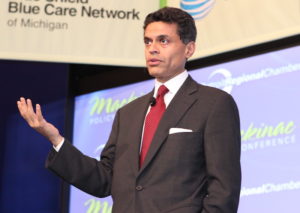
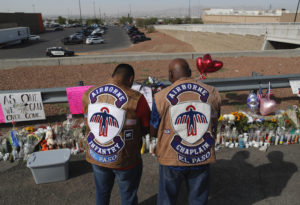
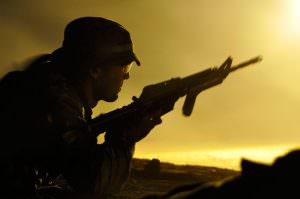
You need to be a supporter to comment.
There are currently no responses to this article.
Be the first to respond.